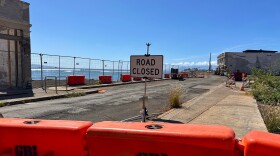Gen Z is entering the workforce but numerically, it's a smaller generation. For Hawaiʻi, that is going to compound an already existing labor shortage.
According to U.S. Census Bureau data, more than a quarter of a million Gen Z workers in the islands will age into the workforce over the next 15 years.
Gen Z includes people born between the mid to late 1990s and the early 2010s. Over the next 15 years, about 267,000 workers are expected to age out.
That would leave Hawaiʻi short by 16,000 workers — assuming they all actually stay in Hawaiʻi rather than join the recent pattern of net migration out of Hawaiʻi.
Hawaiʻi's workforce is already 10,000 people smaller than before the pandemic, notes Carl Bonham, executive director of the University of Hawaiʻi Economic Research Organization.
He says future migration patterns could mitigate, or worsen, the impact of Gen Z’s smaller size, depending on how many people move to Hawaiʻi.
Nationwide, Gen Z is numerically smaller than the millennial and baby boomer generations.
Patricia Bustamante, vice president of people and culture at ProService Hawaii, says employers can enhance their appeal to Gen Z candidates by offering stability, and support for their personal and professional growth.
One entity watching this closely is the Healthcare Association of Hawaii, which just released an updated report on Hawaiʻi’s critical shortage of health care workers.
Hilton Raethel, president and CEO, says his organization is reaching into high schools more than ever with training and certifications to boost the workforce pipeline.



